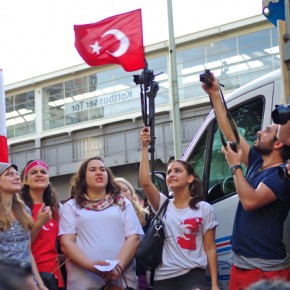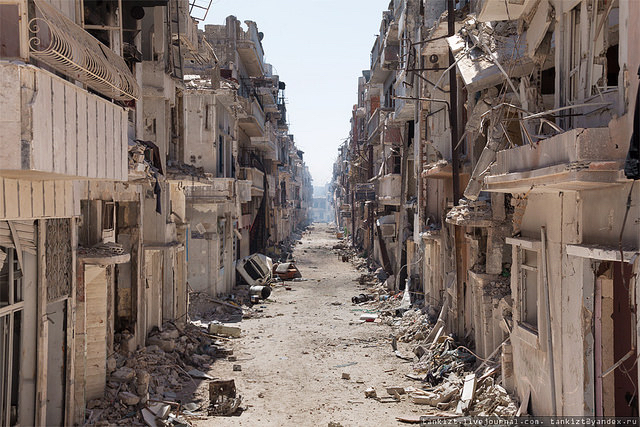Washington is now ‘involved’. Following a string of high-profile victories by Syrian government forces, the Obama Administration has announced that it will begin distributing ‘non-lethal aid’ to rebel factions. Although its justifications include four uses of chemical weapons by Syria, it is clear that Assad’s renewed momentum, with Russian and Iranian support, has changed Obama’s outlook. This was bound to happen, as bipartisan support for military action on Capitol Hill has gained momentum. The question is what the immediate consequences will be for both Syria, and the region more broadly.
The first is a proxy-war between the U.S. and its immediate allies. There will be a great deal of internal fighting over which resistance organizations ought to receive the most assistance. The Obama Administration carefully stated that it would give aid to “moderate” guerrilla factions, making clear its intentions for U.S.-aligned rebels to gain control of Syria after the war. Ironically, this puts it in direct conflict with American allies Saudi Arabia and Qatar, though more so with the latter.
Although Saudi Arabia has been supporting some distinctly immoderate militant factions, Qatar is working closely with the Syrian Muslim Brotherhood to support Salafi militants almost exclusively. This is part of a strategic push by Qatar to gain more strategic independence from Saudi Arabia through a rival military alliance. It also means that at the same time that the C.I.A. is supporting its rebel allies, American allies will be supporting groups that are directly at odds with Washington’s strategic interests in the country. The most notable example is al-Nusrah, a rebel group that has ties with Al-Qaida in Iraq and is a major part of the insurgency.
The C.I.A. and the U.S. military will likely have to collaborate in order to simultaneously support and purify the rebel coalition of its rogue Islamist elements. One of the main reasons that President Obama has not supported the Syrian rebels until this point is because of al-Nusrah. This is wise strategic thinking, given that the armed opposition has troubling similarities to that which fought in the Soviet-Afghan war, and ultimately led to the creation of al-Qaida.
It is very likely that Obama intends to make true on an ominous quote by a US official to a rebel leader, “you should kill these Nusra people. We’ll do it if you don’t.” If military aid is not enough to ensure that Salafi groups are controlled, more direct forms of intervention, either by drone strikes or U.S. allies such as Erdogan’s Turkey, may be considered necessary. However, supporting an already weakened rebel coalition, while simultaneously attempting to expunge one of its most powerful organs, is a policy that will most assuredly lead to additional unrest.

The second is a proxy-war between the U.S. and other international actors. The main reason that Bashar al-Assad has been able to turn the tide in recent months is because of a new military strategy that hinges on assistance from Russia and Iran. Iranian assistance involves Hezbollah leader Nasrallah’s willing deployment of his fighters to support al-Assad. Hezbollah assistance was crucial in the regime taking back control of the strategic Lebanese-Syrian border town of Qusayr earlier this week (this would have also included Hamas, but it knew better, and has been punished for it.)
The effect of this dual proxy-war has been that Syria is increasingly turning into a chessboard. This is to the detriment of international support for the Syrian revolution, as well as grassroots organizations such as the Popular Front for Change and Liberation, who do not want to align with a foreign benefactor. Groups like the Popular Front can expect to be sidelined as regional and global powers attempt to leverage their own interests against each other in the coming years.
Beyond Syria, the fallout of this new phase in the conflict cannot be understated. There are several possible scenarios:
*Since part of this international proxy-war means Iranian support for Shi’i actors in the conflict, it will also fuse with the continued fallout from the Iraqi civil war, Saudi-sponsored campaigns of predatory Sunni incitement, and U.S. tensions with Iran, to inspire dramatic sectarian consequences as far away as Pakistan.
*U.S. need for Erdogan’s Turkey to prepare for a formal intervention will likely to continue to have domestic effects there, as Erdogan desperately attempts to crush dissent in order to prepare his military for regional war.
*An extended war in Syria could very well empower a new generation of Salafi terrorists, as occurred in Afghanistan thirty years ago, with some of them already experienced from fighting during the American-led occupation of Iraq.
*The United Nations will inevitably find itself further disempowered, especially with proposed plans to set up a no-fly zone with Jordanian assistance, thus circumventing the Security Council. There is no way that the U.N. can be an effective force when its most powerful member completely ignores it.
There are likely more consequences that cannot be seen at this point. However, what seems clear is that for the foreseeable future, Syria is going to be cannibalized by the Middle Eastern status quo. As a huge part of the Arab spring was envisioning a new social order for the Muslim world, it will likely be up to the same regional activists that pushed for its most positive aspects to confront this reality. The Syrian civil war may very well put an end to this process, if outside forces decide to seize the opportunity.
Photographs courtesy of Joel Schalit





